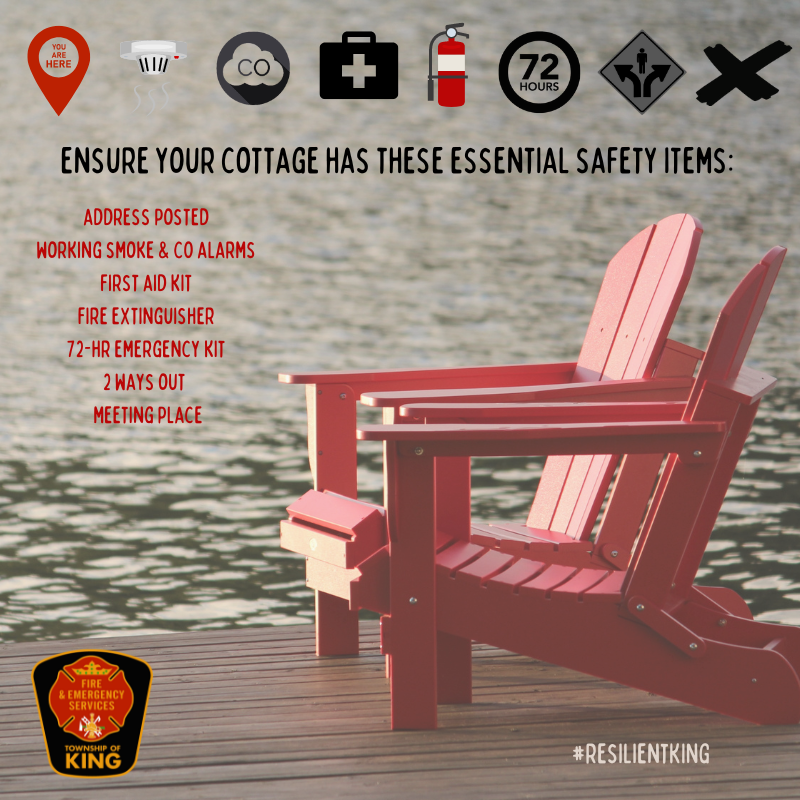As the August civic holiday approaches, many Canadians eagerly retreat to their cottages, enjoying the natural beauty and serenity these retreats offer. However, while the picturesque lakes and lush forests provide a perfect escape, they also bring potential safety hazards that cottage owners must be prepared to address. Prioritizing cottage safety is crucial for a worry-free and enjoyable experience.
Understanding fire risks
Fire safety is a primary concern in cottage country. The abundance of natural materials, such as wood cabins and dry vegetation, coupled with the use of fire pits and barbecues, can increase the risk of fires.
- Test smoke and carbon monoxide alarms: Test your alarms monthly and replace batteries, if required, at the start of each season.
- Clear brush: Keep a 1.5 metre non-combustible zone around the cottage and deck by clearing away dry leaves, branches, and other flammable materials from around the cottage. Keep firewood at least 10 feet away from the cottage.
- Safe use of fireplaces and stoves: Have your chimney inspected annually by a certified professional and use screens to prevent sparks from escaping.
Water Safety
Cottage life often revolves around water activities, making water safety essential. Drowning is a significant risk, particularly for children and inexperienced swimmers.
- Life jackets: Always have life jackets (personal flotation devices) available and ensure they are worn during boating activities.
- Supervision: Never leave children unattended near water and consider enrolling them in swimming lessons.
- Alcohol and water sports: Avoid consuming alcohol when swimming, boating, or participating in any water-related activities.
- Lock up: Always lock doors and windows when the cottage is unattended, even for a short period.
Weather preparedness
Weather conditions in cottage country can be unpredictable. Preparedness is key to managing unexpected storms or natural disasters.
- Emergency kits: Keep a well-stocked emergency kit, including flashlights, batteries, water and non-perishable food items that will last you at least 72 hours.
- Weather alerts: Stay informed about local weather conditions and have a plan in place for evacuation if necessary.
- Tree maintenance: Regularly inspect trees around your property and, if needed, have a professional tree company remove any that pose a risk of falling during storms.
First aid and medical preparedness
Access to medical facilities can be limited in remote cottage areas, so it's vital to be prepared for medical emergencies.
- First aid kit: Always have a first aid kit on hand, with supplies for treating cuts, burns, and other minor injuries.
- Emergency contacts: Keep a list of emergency contacts, including local healthcare facilities and emergency services.
- Training: Consider taking a first aid and CPR course to handle potential medical emergencies effectively.
Know your exact address and what the local emergency number is. Also be mindful that the response from local emergency responders could be different than an urban or even rural location.
By taking these precautions and remaining vigilant, cottage owners can protect their piece of paradise, ensuring that their retreats remain safe havens where they can relax and enjoy the beauty of nature without worry.

